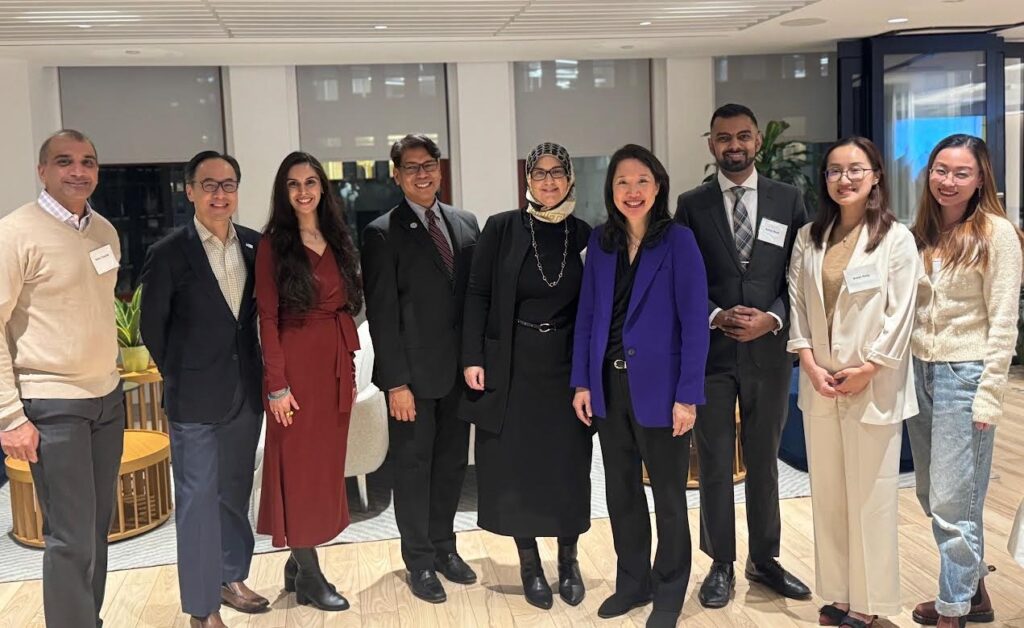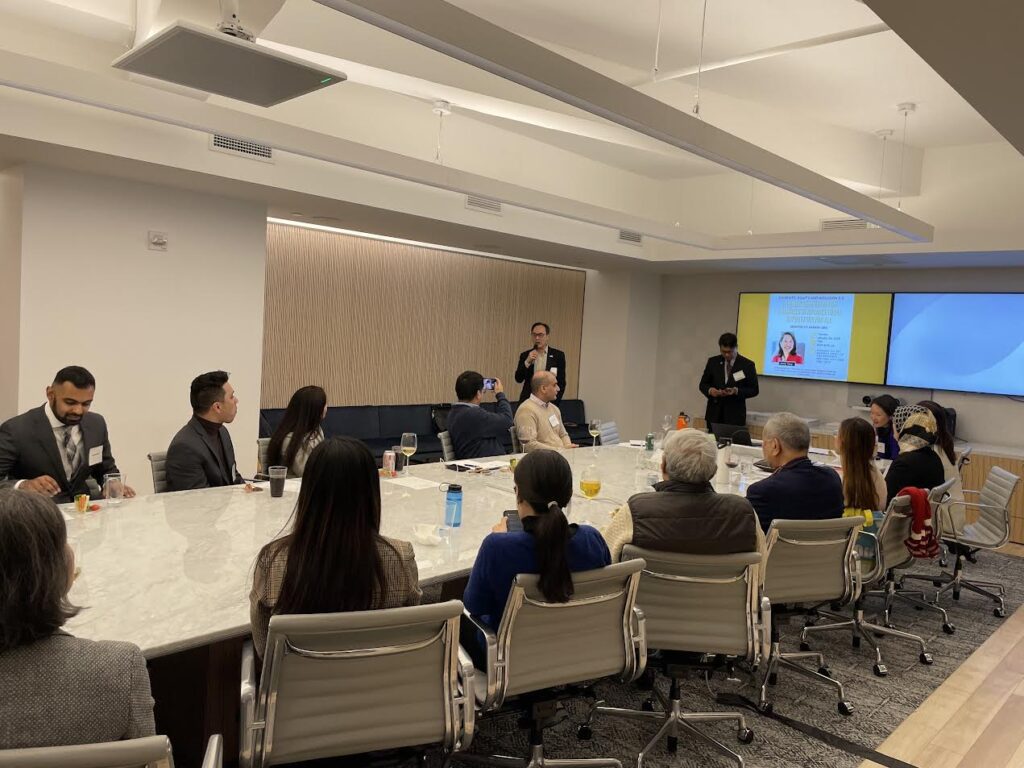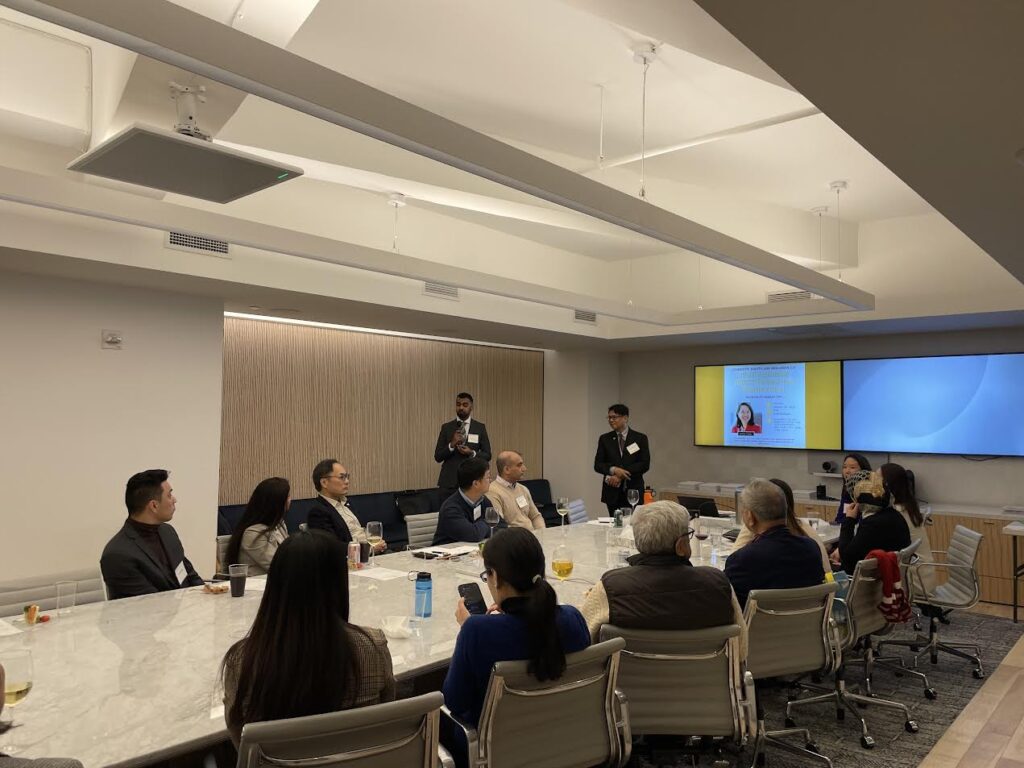
On January 30th, 2025, AABANY, together with the South Asian Bar Association of New York (SABANY), co-sponsored a CLE program entitled “Diversity, Equity and Inclusion 2.0, Featuring Jenny Yang.” The event, offering 1.0 credit hours towards the Diversity, Inclusion, and Elimination of Bias requirement, discussed the current situation and potential future of DEI programs in the wake of the current administration’s Executive Orders.
Jenny Yang, former Chair of the U.S. Equal Employment Opportunity Commission and previous White House Deputy Assistant to the President for Racial Justice and Equity, shared her informed perspective on the issue.
The event was hosted by Fragomen, Del Rey, Bernsen & Loewy, LLP at their midtown New York office. Attendees streamed in starting as early as 5:30 pm. Then, the program began with some opening remarks by SABANY President Ashish Bhatt, AABANY Executive Director Yang Chen, and an introduction of the keynote speaker by Glenn D. Magpantay, Co-Chair of the AABANY LGBTQ Committee and Commissioner for the US Commission on Civil Rights.


Jenny first shed some light on current developments with the new administration and some of the Executive Orders that have been issued. She described how they do not alter the laws currently in place surrounding DEI, and how, for employers engaging in fully lawful DEI programs, these Executive Orders have no effect. She went on to talk about the current perception held within the country that DEI programs in essence are a form of affirmative action but noted that view to be incorrect because they do not “save spots” for specific marginalized groups and instead analyze already existing workforce data to identify disparities in the workforce and then address them. Additionally, she mentioned the wording in many of these Executive Orders referring to “illegal DEI programs” and how companies and industries are scared into retreating and reducing their DEI initiatives as a result.
Ultimately, Jenny asserted how important it was to recognize that the vast majority of DEI programs are legal under Federal laws such as Title VII and that companies, especially law firms, should not back down in the face of these Executive Orders.
She closed the presentation by noting that the future of DEI programs in the United States is largely uncertain, expressing the hope that they can persist and strive to be more inclusive. A vibrant question-and-answer session followed, during which attendees asked about various topics, from the validity of specific Executive Orders already in place to the potential actions of the administration to undermine previous protections granted by federal legislation, such as Title VII.
Thank you to AABANY’s Issues and Memberships Committees for co-sponsoring this event, as well as to Fragomen, Del Rey, Bernsen & Loewy, LLP for hosting. To learn more about the Issues Committee, click here. To learn more about the Membership Committee, click here.


